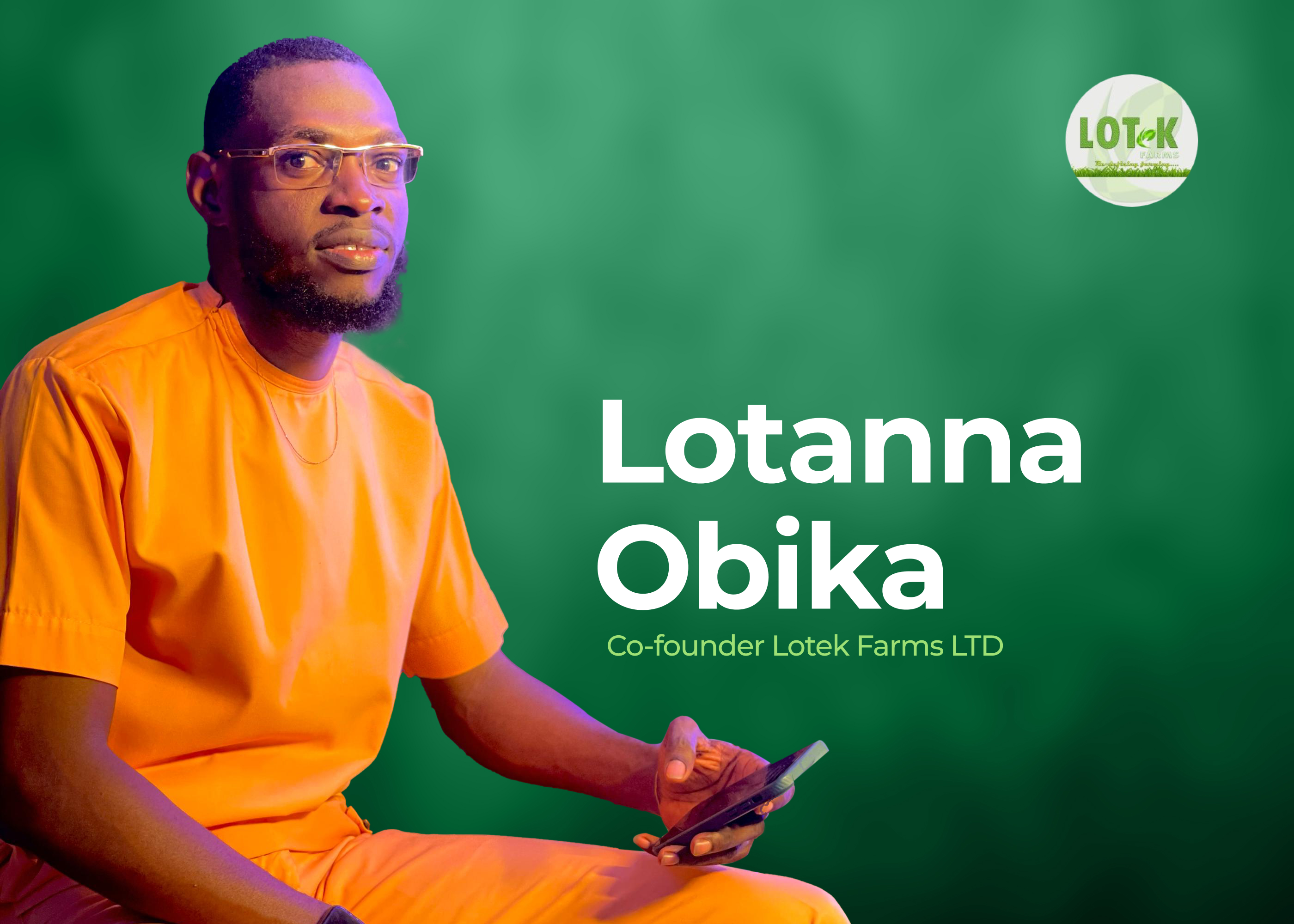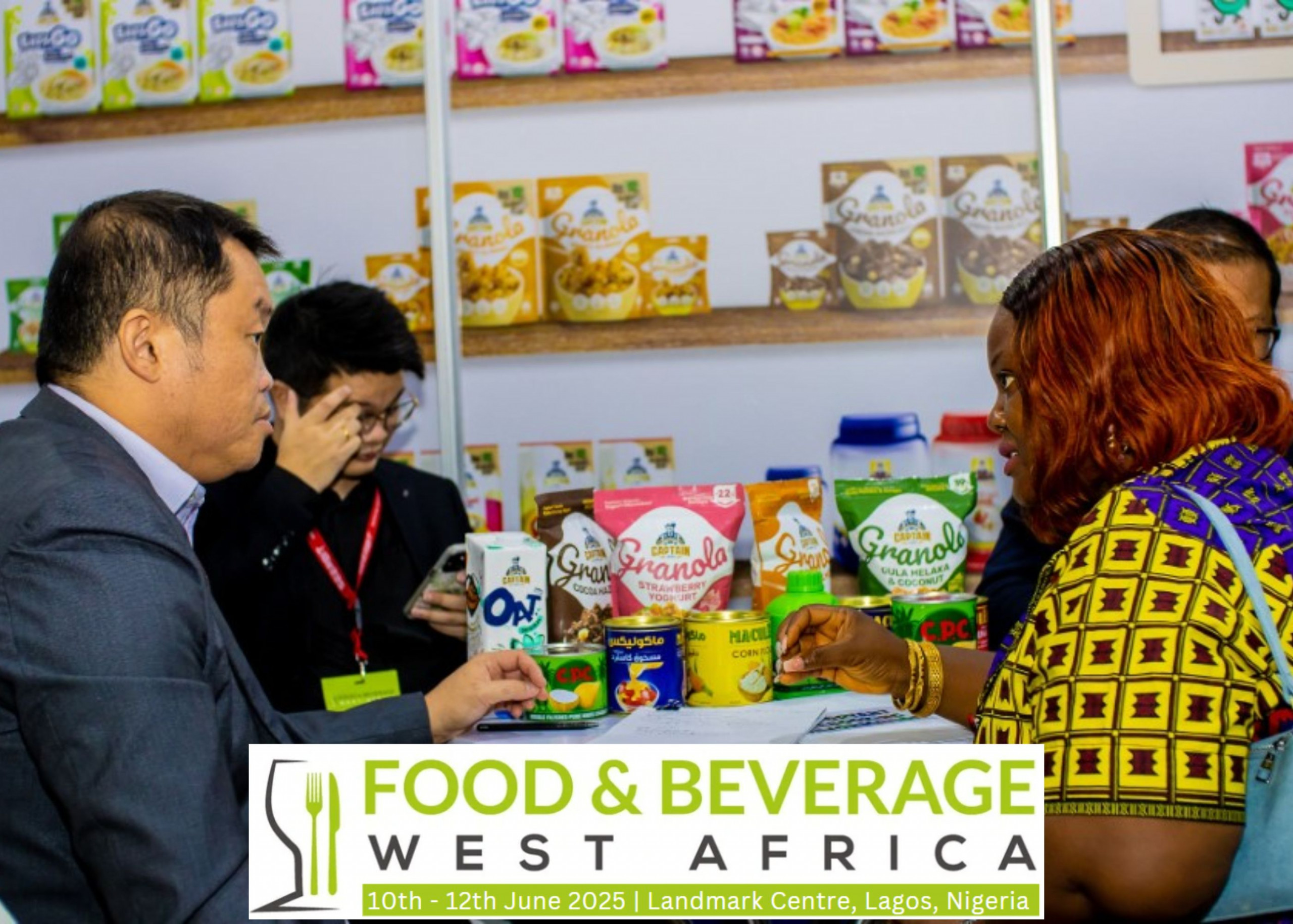It is not every day you hear about someone willingly leaving the tech space to venture into agriculture, but that’s exactly the journey of 28-year-old Lotanna Obika, the Co-Founder of Lotek Farms.
In an interview with this publication, Lotanna opens up about his unexpected transition. He shared how his journey so far has seen him try his hands at several agricultural ventures before finally finding his footing in poultry farming.
From web development to livestock development
Lotanna’s career began in the tech industry shortly after he graduated from the Federal University of Technology, Owerri (FUTO). Although he studied biology, his interest in technology grew during his university years as he learned website development on the side. After graduation, he worked as a website developer in Nigeria’s fast-paced tech industry, where he experienced moderate success.
Despite this, Lotanna did not feel fulfilled. “I was in tech for some time, but the work felt like something was missing,” he shared. He realised that he wanted more—a business that was tangible, profitable, and aligned with his entrepreneurial spirit. It was during this period that his roommate and longtime friend, whose family owned a catfish farm, suggested that Lotanna try farming. The two of them decided to partner up and take the leap.
Catfish farming: the first failure
Lotanna and his partner pooled their resources—savings from his tech job and contributions from his friend—and started a catfish farm with 10,000 fingerlings. They were optimistic and believed they could make it work, but in hindsight, they were unprepared for the challenges ahead.
“We didn’t have any prior education on catfish farming. All we had was what we’d learned from YouTube videos,” Lotanna admitted.
It took six months for the fish to mature, and when they finally sold them, they barely made back their capital of about ₦5 million. There was no profit. Determined to improve, they decided to switch to a different vendor for fingerlings and scaled down to 7,000 fingerlings. This adjustment yielded ₦300,000 in profit after four months—not much, but it gave them hope.
However, things took a turn for the worse when, before their third sale, they lost 3,000 fish in a single month. “It was devastating,” Lotanna said, recalling how their profit projections were shattered. They realised only ₦3 million from the sales, which wasn’t even enough to cover costs.
To save money, they decided to hatch their fingerlings. They hired an expert for ₦300,000 and spent ₦440,000 on infrastructure, along with ₦15,000 per broodstock. Their first attempt showed promise, with an 80% success rate in hatching the fish, but disaster struck again. “The next day, they all died,” he revealed.
They later discovered that the water in Owerri, where their farm was situated, was too acidic for the fish to survive. With advice from their expert, they tried using chemicals to balance the water and experimented with transparent plastic bowls for hatching, but nothing seemed to work. In the end, they were forced to put all farm operations on hold in December 2022.
“It was hard to accept the failure,” Lotanna said, his voice tinged with emotion. Lotanna and his partner returned to their homes in Anambra and Warri, respectively, to recoup.
Building Lotek Farm: transition into poultry farming
Barely two weeks later, on January 7, 2023, Lotanna received a call that changed everything. His partner told him an investor was willing to put ₦14 million into their next venture. With the painful lessons from catfish farming fresh in their minds, the pair decided to pivot to poultry farming, a business they believed would be less complex to manage.
“I believed poultry farming was a better option because it didn’t require as much technical knowledge or strict conditions upfront,” Lotanna explained.
They invested ₦7 million in infrastructure and started with 1,000 broiler chicks. Unfortunately, their inexperience caught up with them again. A vendor sold them an inferior breed of chicks, leading to the loss of nearly 200 birds during rearing. Poor management further compounded the issue, leaving them with no profit after sales.
Their second attempt with 800 chicks from a different vendor didn’t fare much better. Inflation also began to eat into their profit margins, with the cost of broiler feed rising to ₦26,000 per bag. Despite the setbacks, their investor remained patient and encouraged them to continue.
“It costs ₦2,500 to ₦2,800 per broiler to rear but due to our management challenges it cost us ₦3,500”, he explains.
By the end of the year, they decided to scale down, purchasing only 600 birds to minimise losses. This time, they made a profit of ₦495,000—a small but encouraging win. Lotanna and his partner reinvested the money and increased their next batch to 1,000 chicks. This time, their profit jumped to ₦900,000 in two months. With their newfound experience, they repeated this approach four times, steadily growing their profits.
Expansion and Success
By May 2024, Lotek Farms had expanded significantly. Using ₦6 million in profits and an additional ₦15 million from their investor, they purchased 500 layer chicks. This marked a turning point for the business. Over time, they grew their layers to 1,500, establishing a steady customer base for both eggs and chicken.
View this post on Instagram
“I’ve learned that farming is not easy,” Lotanna reflected. “There are always challenges, but it teaches you to be patient and resilient.”
One of the most rewarding aspects of his journey, he said, has been the positive feedback from his customers and the steady growth of the farm.
Lotanna’s Vision for the Future
Looking ahead, Lotanna and his partner have ambitious plans for Lotek Farms. They aim to further expand their operations and possibly diversify into other areas of agriculture. Sustainability is also a key focus, as they are committed to adopting environmentally friendly farming practices.
“I want to grow this business and inspire other young Nigerians to see the potential in agriculture,” he said.
He also offered some advice to aspiring farmers: “Before you start, know the needs of your location. For example, in Owerri, catfish isn’t as popular as in other places, so we struggled to sell, he said. “And don’t be afraid to pay for knowledge before venturing into farming. I learned the hard way, but farming has so many opportunities for growth if you approach it the right way.”
From a failed catfish farming venture to a thriving poultry business, Lotanna’s story has shown that success is possible, even in the face of repeated setbacks. His journey serves as an inspiration to other young Nigerians who might be considering unconventional career paths.



